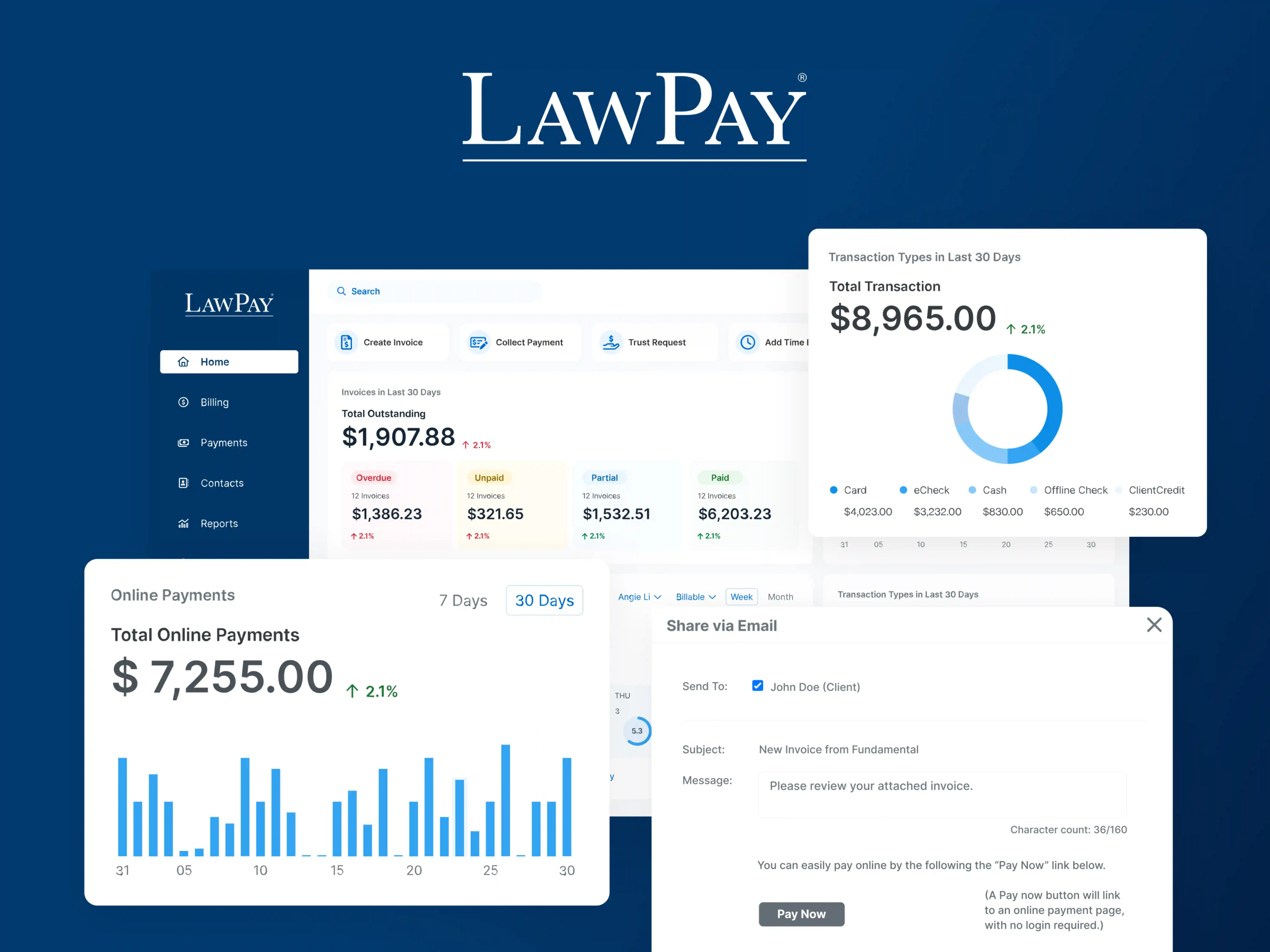From case files and legal briefs to contracts and court summons, the art and practice of jurisprudence involves spending an awful lot of time putting words on paper.
Jokes aside, much of this documentation contains sensitive information, such as divorce settlements, botched medical procedures, and other matters the parties wouldn’t want to make public.
This is why legal practices must take action to keep documents secure. Failure to do so could mean that your documents end up getting leaked, which would likely result in reputational damage (at minimum) or serious legal repercussions. Today, we’ll discuss various ways you can protect yourself from these hazards.
What is Law Firm Document Security?
There are a variety of techniques meant to help law firms secure documents and safeguard the information they contain, including tightly controlling access to sensitive paperwork and investing in cybersecurity for law firms.
In later sections, we’ll answer many questions on document security.
Why is it Important for Law Firms to Secure Documents?
By its very nature, the legal profession often deals with sensitive information. For example, two technology companies settling an intellectual property dispute might both disclose secrets about their respective products during a legal proceeding. Part of your responsibility is to protect this information from those who want to use it for nefarious purposes.
According to a study by the American Bar Association (ABA) in 2022, 27% of respondents indicated that their firms had experienced a security breach in the last year. This doesn’t always mean that a criminal was able to access sensitive information—they may have simply stolen a phone or personal laptop that didn’t contain any such information. Nevertheless, this indicates how important it is to help your law firm secure documents.
Some big names in the legal industry had to learn this lesson the hard way. In mid-2020, Grubman Shire Meiselas & Sacks was hit with a ransomware attack. The hackers first released information about one of the firm’s prominent clients, Lady Gaga, then demanded $42 million in exchange for not releasing more.
Perhaps your clients don’t have the same high public profile as Ms. Gaga, but they still deserve privacy and discretion. For their sake (and yours), you need secure systems and processes for storing documents.
Next, we will discuss how document security can fail.
Why Shouldn’t You Use Email to Send Sensitive Documents?
Email remains a common way point of weakness in law firm security.
Put simply, email is not a secure form of file sharing for law firms. Though it has become popular in an increasingly digital world (and even more so as work becomes more remote), email remains a common way point of weakness in law firm security. There are many ways for hackers to intercept email messages and embed malware in links or attachments. In addition, emails with sensitive information can be inadvertently leaked (i.e. when a message is forwarded to someone who shouldn’t be allowed to read it.)
Intercepted Documents
One of the easiest ways for someone to get access to information they’re not supposed to have is by simply intercepting a document during transfer.
While no lawyer would be reckless enough to leave a client’s files on a public park bench, modern communication tools, like email, have inherent security vulnerabilities that are easy to overlook.
It is possible for a skilled hacker to intercept documents sent via email at multiple different points, including at routers and as it is processed by an internet service provider. This isn’t even considering the fact that emails can be forwarded along to others, or printed. There is also the risk of documents being intercepted if they’re stored on a thumb drive or put on a file-sharing service.
For these reasons, the ABA has formally stated that legal professionals must warn clients about the risks of communicating via email.
The ABA has formally stated that legal professionals must warn clients about the risks of communicating via email.
The broader point here is that it’s your responsibility to think carefully about the security implications of the technology you’re using. There are ways to handle secure file shares, and you should be aware of them.
Malware
Another subtle attack strategy is malware, which is software designed specifically to breach a security system. Malware might be included in an innocuous-looking email attachment, for example, or a link that quietly downloads a virus on your computer.
Malware is very hard to protect against in general, but one of the best ways is to continuously educate your legal team on the need to remain vigilant. Your employees have to be very careful about which files they download and how they interact with messages.
Tips for Securing Law Firm Documents
Thankfully, there are many ways for you to protect yourself and your clients. In the remaining sections, we’ll walk through multiple techniques that can help your law firm secure documents.
Choose Legal Software That Prioritizes Security
One of the best ways you can bolster your security is by using good software that is designed specifically for the needs of legal professionals. LawPay’s security features, for example, are built around industry-leading standards which keep your data and your documents from being accessed inappropriately.
LawPay’s security features, for example, are built around industry-leading standards which keep your data and your documents from being accessed inappropriately.
Cloud-based practice management software like MyCase is built specifically for law firms and has built-in docuement management capabilities.
Though we’ve been focused on document security, there are also regulations around how you handle any data related to processing credit card payments. Payment card industry (PCI) compliance for law firms is an ongoing issue, and this, too, is something you need to be thinking about when shopping for legal software.
Check Permission Settings
Setting permissions is a key step to keeping your documents secure. That way you know who can access what, thus limiting the scope for potential breaches.
Before you invest in legal software, make sure it has robust permissions settings (or has integrations to other tools that do.) In particular, look for software that allows you to set permissions on specific documents (verses on entire folders) and “security groups,” for whole categories of users. Also find out if any of the permissions eventually expire.
For maximized security, look for a software that supports multifactor authentication (MFA). Multifactor authentication refers to the practice of requiring several steps before a given document can be accessed. A user might first have to input their password, for example, and then input a code sent via text message to their phone.
Use Data Encryption
Encryption is another way keep your documents secure. In the same way that locking a room keeps people from entering it without a key, encryption means locking your data so that it can’t be read without a key. Encryption can be done ‘at rest’ (when it’s on a computer’s file system) and ‘in transit’ (when it’s being transmitted over a network.) Both are extremely important. It does you little good to carefully encrypt files locally if they’re just going to be sent unencrypted and unprotected on the internet.
Any legal software you’re considering should support file encryption at rest and in transit. That way, even if someone manages to steal a document, it will be useless to them.
Provide Employee Training
A lot of cybercrime revolves around tricking or subtly manipulating a person into giving an attacker access to a system. A “phishing” exploit, for example, might involve getting a person to visit a compromised website by pretending to be their boss.
A “phishing” exploit, for example, might involve getting a person to visit a compromised website by pretending to be their boss.
Unfortunately, there’s no universal, fail-safe technological solution for these scenarios. People must be educated about their dangers and must maintain an active posture. Each employee must think carefully about the messages they receive and whether they’re legitimate. The best way to achieve this goal is by training your employees on common methods of attack and revisiting the training on a consistent basis.
Keep Documents At Your Law Firm Secure with LawPay
Cybercriminals work tirelessly to subvert security and gain access to privileged information in order to extort their victims.
Because the legal profession often involves sensitive data, it is a tempting target for these bad actors. Law firms must take steps to keep their documents safe from prying eyes.
Luckily, LawPay’s software tools are built for this exact purpose. LawPay can also help you boost law firm profits across many industries. Schedule a demo today to learn more.
Schedule a demo to see what LawPay can offer your firm.
Book Now
About the author

Trent Fowler
